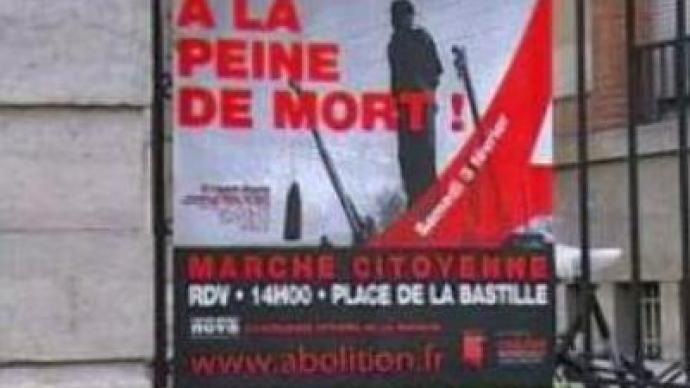Death penalty abolition discussed in Paris

The International Federation for Human Rights has urged all states to abolish capital punishment at the next UN General Assembly. It comes as the World Congress Against the Death Penalty enters its third and final day in Paris.
The global debate was renewed after the execution of Saddam Hussein.Even though the death penalty is abolished in 124 countries, it is still used in 69 countries with most executions carried out in China, Iran, Saudi Arabia and the United States. In Russia all executions were stopped in 1996 after President Boris Yeltsin signed a moratorium so that the country could comply with the European Union standards. However, the issue remains controversial. Despite the moratorium, people in Russia are still being sentenced to death for grave crimes. Nurpashi Kulaev is the only surviving terrorist of those who attacked Beslan’s school number 1 in 2004, in the Republic of North Ossetia-Alania in Russia. He is one of the last to get the death sentence. However, like many others, he won’t be executed. Most likely Kulaev will serve a life sentence in one of the country’s special prisons. Meanwhile, several Russian nongovernmental organisations are struggling to abolish the death penalty completely. “Russia gave its word. And like the old saying goes – ‘a man has to keep his word'. For Russia it's not just a question of moral or legal issues, it's a question of politics. If it does not abolish capital punishment, our position in the Council of Europe will suffer,” Sergey Yurov, human rights activist, claims.As Russia is trying to adopt European legal standards, the question of the death penalty is becoming the key point. The members of Federation Council,the upper house of Russian parliament, say it’s necessary to ratify the EU’s two protocols that will finally abolish capital punishment.Thomas Hammarberg, the Commissioner for Human Rights at the Council of Europe, spoke with Russia Today about the abolition of the death penalty. He believes that the Russian government should start giving more information about capital punishment. ‘In some of the European countries they abolished the death penalty without having the full majority behind them and after a while people recognised that this was the right thing to do. So this is also question of leadership from politicians. Some of those who refer to the public opinion don’t themselves take the responsibility to educate people and tell them what the death penalty really is. There have been some studies made about how people react when they get full information of what the death penalty is – the procedure, the impact of the death penalty. After people get that information, they tend to change their mind and are against the death penalty,’ he said.
You can share this story on social media:












